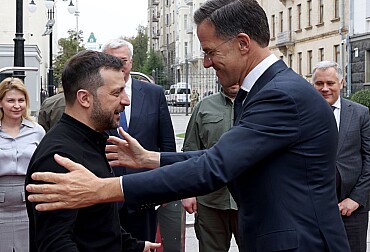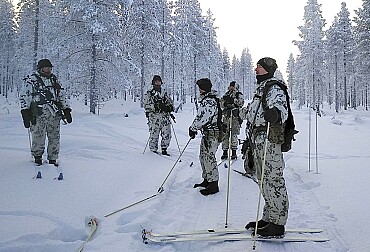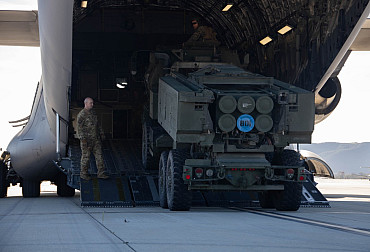Ukrainians urge White House to lift missile-use restrictions amid escalating Russian attacks
As the conflict between Russia and Ukraine intensifies, Ukrainian officials are making a fervent plea to the White House to lift restrictions on the use of U.S.-supplied missiles. These restrictions, particularly on the long-range Army Tactical Missile Systems (ATACMS), are seen as a significant hindrance to Ukraine's ability to preemptively strike Russian forces and protect key cities.

During a recent visit to Washington, several Ukrainian government officials, including members of parliament Oleksandra Ustinova and David Arahamiya, met with U.S. lawmakers to emphasize the urgent need for policy changes. This appeal coincides with Secretary of State Anthony Blinken's visit to Kyiv, where he announced another round of arms support while engaging in a symbolic gesture by playing guitar.
Shift in Russian tactics
The urgency of Ukraine's request is underscored by the shifting strategies of the Russian military. According to Ustinova, Russia has moved from trying to occupy cities and towns to a strategy of complete annihilation. This is evident in the use of FAB-1500 glide bombs—massive 1.5-ton bombs that are launched from SU aircraft at distances of 50 to 60 kilometers. These bombs have devastating effects, as seen in the destruction of Mariupol, and similar threats loom over other cities like Kharkiv.
Economic warfare and defensive needs
In addition to physical destruction, Russia appears to be broadening its scope to economic targets. Arahamiya highlighted that attacks on electricity lines are aimed at crippling Ukraine's industrial production, reducing GDP, and ultimately undermining the country’s ability to pay its military forces.
To counter these threats, Ukrainian officials assert that they need three critical resources: more Patriot missile systems, comprehensive training for F-16 pilots, and the ability to use U.S.-supplied weapons against targets inside Russia. Currently, Ukraine has three Patriot systems, with a fourth expected soon, none of which are from the United States. The Biden administration has expressed concerns about maintaining missile supplies for Patriot batteries, particularly as demand from Israel increases.
Training challenges for F-16 pilots
The training of Ukrainian F-16 pilots has also faced obstacles. While the U.S. aims to have trained one squadron of Ukrainian pilots by the end of summer, language barriers and limited training slots at Morris Air National Guard Base in Tucson, Arizona, have slowed progress. Ukrainian officials counter that they have sufficient qualified pilots but face competition for training spots from other countries and the U.S. military itself.
The call for policy change
Perhaps the most critical aspect of Ukraine’s plea is the call to lift the restrictions on using U.S.-supplied weapons to strike within Russian territory. The White House has maintained that such military aid should be for defensive purposes only. Ukrainian officials argue that this policy has allowed Russia to adapt its supply lines, positioning them just across the border and thus out of reach, despite being crucial targets.
Ustinova pointed out the disparity in restrictions compared to other nations, noting that countries like Israel do not face similar limitations on their use of foreign-supplied weapons. The lifting of these restrictions, she argues, is essential for Ukraine to defend itself effectively against the escalating Russian threat.
Conclusion
The situation in Ukraine remains dire as Russian tactics evolve and expand. Ukrainian officials continue to push for a reevaluation of U.S. policies that they believe are limiting their defensive capabilities. With the potential for significant urban and economic destruction on the horizon, the urgency of their plea to lift missile-use restrictions and enhance defensive support is clear.









